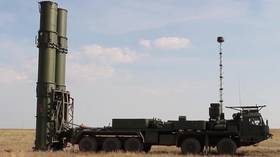NATO’s one-sided view ‘puzzles’ Moscow
Russia will draw its own conclusions over NATO's stance on the conflict in South Ossetia. That's the message from Russia's Foreign Minister, Sergey Lavrov, after the alliance's meeting on Tuesday in Brussels.
NATO accused Moscow of disproportionate use of force, but Lavrov hit back by criticising the alliance for failing to look into the root of the conflict.
Speaking at an emergency meeting of the NATO foreign ministers, Secretary General Jaap de Hoop Scheffer was very specific in his evaluation of the South Ossetian conflict.
“Russian forces are basically occupying a large part of Georgia,” De Hoop Scheffer repeated several times.
However, when asked about Georgia's actions, De Hoop Scheffer refused to comment.
Russia’s Foreign Minister Sergey Lavrov said:
“We are puzzled by how NATO assesses the way the peace agreement is being implemented. They blame us only. As if these principles don’t require Georgian leaders to immediately withdraw all their troops to their original positions.”
NATO's position was clear: it supports Georgia and is uncertain about future relations with Russia.
“There can be no business as usual with Russia under the present circumstances and the future of our relations will depend on the concrete actions Russia will take to honour the words of President Medvedev to abide by the six-point peace plan – which is not happening at the moment as we speak,” Jaap de Hoop Scheffer said.
But considering the demands made by the U.S. before this session – such as discontinuing the Russia-NATO Council and imposing sanctions on Russia – the outcome was received philosophically.
Russia’s envoy to NATO, Dmitry Rogozin, said: “We had to break the walls, so the EU could receive objective information from us. And that is what always happens when somebody prevents me from expressing the position of the Russian Federation.”
Rogozin was not provided with a room to hold a news conference in the organisation's main building, where all the journalists are. But while NATO could hinder the ambassador from coming to the media, it couldn't keep the media from coming to him.
“NATO is still an organisation of the past. The best phrase to describe the alliance is ‘born in the Cold War’. Unfortunately, all NATO’s attempts to find its role in the new world and maintain collective security in partnership with Russia have failed,” Rogozin told the journalists.












